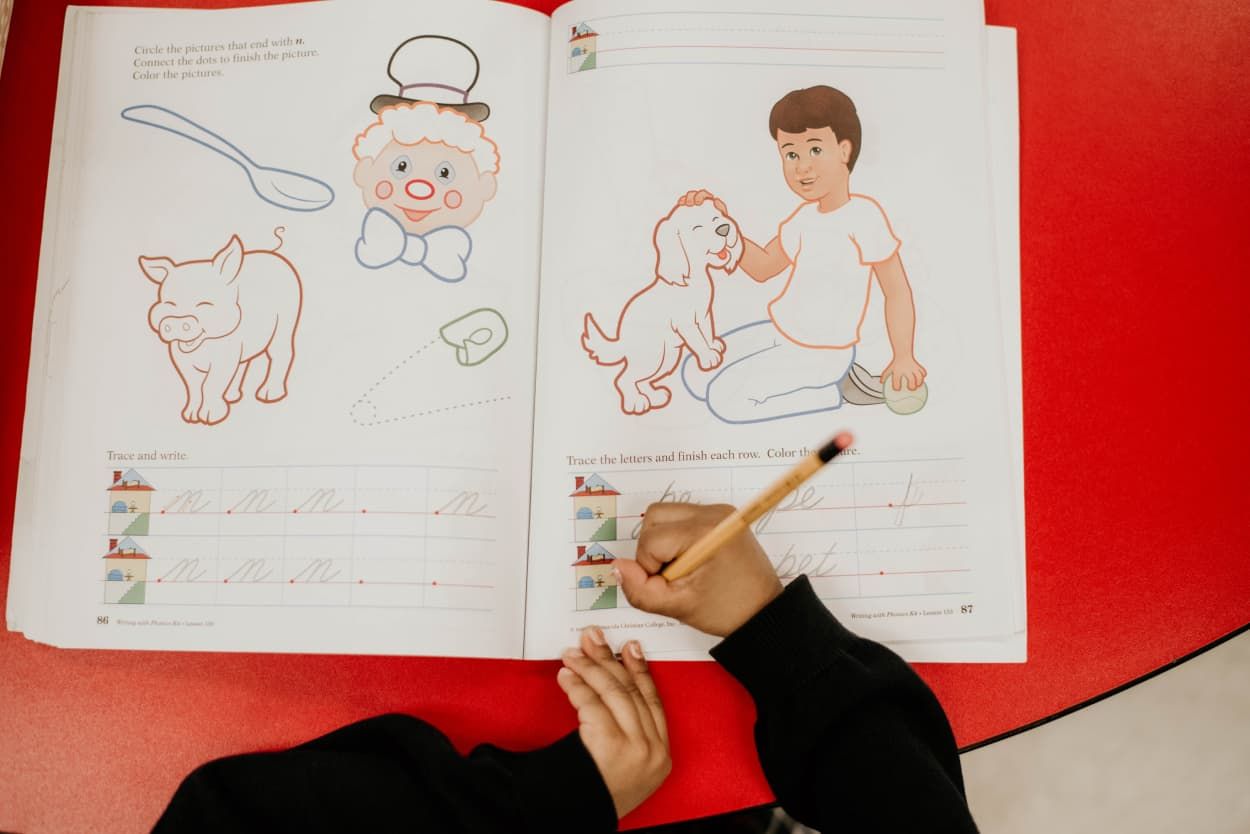Effective Ways and Activities to Develop Leadership Skills in Your Child
Leadership skills are critical to lifelong success. They not only help carry an individual through school and their careers, but they’re essential for overcoming life’s challenges.
Many aspects factor into good leadership, but at its core, it’s about being able to inspire and empower others to collaborate and work towards a common goal.
Of course, like all crucial skills, leadership isn’t a trait that’s gained overnight or given at birth. Rather, it must be taught and developed over time through teaching, living, and a strong system of values. Here’s a closer look at what developing leadership in a child looks like.

What Is Leadership?
Being a great leader means being able to motivate others towards achieving a common goal. A great leader sparks not only inspiration but a spirit of collaboration. They know how to identify and bring out the best in people, and are, therefore, most effective in positions where they get to manage, oversee, or direct teams.
The qualities of a good leader include:
- Strong communication skills
- Empathy and understanding
- Confidence in oneself
- Ethics and humility
- Ability to evaluate situations
- Decision-making capabilities
- Perseverance and determination
As you can see, many traits add up to strong leadership, and you should seek out opportunities to work on each one individually and as a group.
When it comes to a focus on leadership, you’ll find yourself repeatedly reiterating all of the above (and more) to develop balanced, well-rounded, generous, and humble leadership skills.
Why It’s Important to Cultivate Leadership in Your Child?
When it comes to cultivating leadership in your child, the benefits are undeniable and far-reaching. Leadership skills help children take control of their lives, lead a fulfilling life, and have a successful career. Through leadership, your child will develop confidence, learn to solve problems, work collaboratively in a team, and instill responsibility.
Various aspects of leadership can benefit your child at different stages of their life.
First and foremost, strong leadership skills can be showcased early on, in the form of sports, volunteerism, and group activities.
Beyond school, they’ll also prove extremely beneficial as a child grows and eventually enters the workforce, where leadership skills are crucial to scoring top-level positions or running their own business.
Moreover, strong leaders feature essential skills such as perseverance and dedication, both of which help reinforce the importance of completing assignments on time, keeping promises, and being an honest, confident, and trustworthy individual.
In other words, leadership skills truly represent a grouping of other key traits and skills that an individual must have to be successful. Working on all these skills individually and side-by-side is ideal for helping a child develop a well-rounded aptitude.

When Should Children Start Developing Leadership Skills?
Core skills such as the ability to lead others can truly never be developed too early. Experts suggest starting to nurture leadership skills from as early as 2 years of age. Planting the “early seeds” of leadership is something that should be worked into a family’s values system in several ways, first by teaching a child to be confident, empathetic, and willing to step in and help when they can.
Parents should work on developing the following aspects of leadership at different ages:
- Preschool years (ages 2-5) – Start developing emotional intelligence by teaching your child to control desires and wait for rewards through delayed gratification. It’s also a good time to start working on communication and social skills.
- Elementary school (ages 6-11) – Provide opportunities for your child to work in teams to cooperate with others and coordinate efforts. This is also a good age to start working on small projects. Another area to develop at this age are social etiquette and learning to act appropriately in various social situations.
- Middle school (ages 12-14) – Early adolescents should gradually develop self-management skills like goal setting and self-evaluation. Other areas to work on should be coordinating student teams through leadership tasks and roles, as well as public speaking.
- High school (ages 15-19) – Late adolescents should start developing organization skills by coordinating and leading complex projects. One more key area to focus on is learning how to motivate others, as well as delegating and monitoring the work of other team members.
- College (ages 19-22) – As they step into early adulthood, it’s time to take on bigger leadership roles such as starting or leading a school club, founding a grassroots organization as well as developing supervisory skills. Summer internships or part-time jobs are a perfect opportunity to test leadership skills in the real world.
These traits will soon be expanded upon, with other crucial values coming into a child’s life as they grow older and begin to gain the capacity to understand such values. Think about things like humility, communication, and so on.
Ultimately, there’s no age “too early” to start working on leadership but, like everything, it’s a lifelong pursuit of continuous improvement.
The best thing parents can do is work the core values of ethics and goodwill into their child’s teachings and day-to-day life from the very beginning.
How to Develop Leadership Skills in Children?
The best way to raise a good leader is to lead by example. In other words, if you want your child to excel in leadership, show them (daily) how you take a leadership role to help others, provide guidance, and mentor when able.
The following are some effective activities that help develop leadership skills in your child:
- Use team-building activities to help your child learn how to interact, collaborate with, and lead around others.
- Help your child develop good decision-making and evaluation skills.
- Teach your child about analyzing outcomes and reflecting upon good and bad decisions.
- Nurture your child’s love for reading, particularly books that showcase and reinforce all the traits you want your child to learn.
- Teach your child about the importance of planning with hands-on projects and activities that help them look ahead and form a to-do list, schedule, or itinerary.
- Help develop confident communication skills, so your child knows how to politely, but diligently, make requests and give constructive feedback.
- Allow your child to actively practice and develop negotiation skills that are respectful and reasonable.
- Encourage dedication by teaching your child how to handle “failures” and learn from the mistakes they’ll inevitably make as they grow older.
This list of examples is a perfect illustration of how leadership is something you should continue working on with your child throughout their life, particularly from the age of 3 through 18, when they are developing their personality and key life skills.
A School’s Role in Developing Leadership
In addition to the teaching you do at home, remember that your child’s school plays an important role in instilling the right values and skills. If your child’s school is not actively participating in developing these skills, and instead focuses too much on textbook and structured learnings, your child may miss out on a substantial amount of leadership practice and influence.
Here at MCA, we work leadership and other vital skills right into the curriculum, ensuring that students are continuously practicing and developing the skills it takes to become a great leader. Through daily interaction, alongside dedicated workshops, projects, as well as summer camps and extracurricular activities, we help produce tomorrow’s greatest leaders.
To learn more about how MCA is different, reach out to us and speak to one of our friendly advisors.







